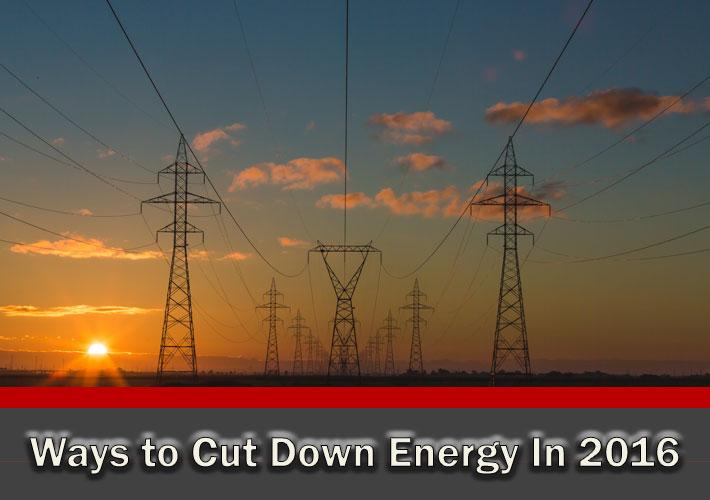Ways to Cut Down Energy In 2016
If you are still getting crazy electricity bills, its time you rediscovered some of the ways you can cut down on these costs. Research indicates that half of a household’s overall energy usage goes towards heating and cooling costs. This not only affects the pockets, but it also degrades the environment. Some of the effective ways to save money on electricity bills include:
Low Energy Lighting
If you haven’t already switched to LED lighting, its time you reconsidered. Ceiling spotlights look great but end up consuming too much energy. Over time, they also get very hot when left on for a certain period of time.
Invest in LED bulbs as they emit less heat and they provide better lighting compared to fluorescent and incandescent bulbs. It is also estimated that LED bulbs can reduce your electricity costs by 90%. Only buy high quality LED bulbs from renowned manufacturers and check for the CE safety branding. A qualified electrician can help you choose the right bulb if you’re in doubt.
Remember to keep the lighting fixtures clean as dirt absorbs light. Hold the bulb with a piece of clothing as bare hands can easily damage the bulb.
Energy Efficient Heating
If you are using an air conditioner, remember to set the temperature at 25 degrees Centigrade. You can invest in a programmable thermostat as this allows you to control the temperature even when you are not home. Regularly clean filters as clogged filters make the fan work harder and this means more energy consumption. Additionally, keep your AC in a clean area and in a place where air can flow freely.
Kitchen Appliances
Keep your fridge or freezer between 0-s degrees centigrade. Frozen food cools the fridge. Remember to avoid over filling as this may restrict the circulation of air in and around the compartments. When using your kettle, boil enough water and do not overfill.
Adequately insulating your attic can reduce your electricity bills by up to 20%. Always check to see if the attic is well ventilated to allow the circulation of air.

